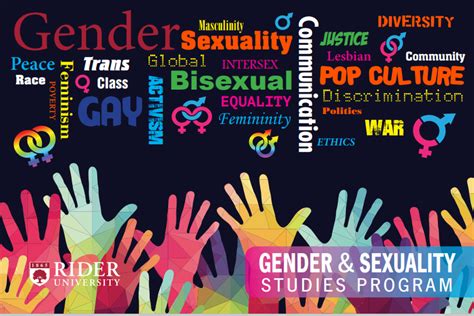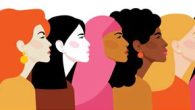Are you interested in learning about the evolving landscape of gender and sexuality studies programs in top US universities? In recent years, there has been a growing recognition of the need for academic programs that address issues of gender, sexuality, and identity in a comprehensive and inclusive manner. This blog post will provide a comprehensive overview of the expanding horizons of gender and sexuality studies programs, covering their curricula, approaches, methodologies, and the practical applications and skill development they offer to students. We will also delve into the ways in which these programs promote inclusivity and challenge traditional gender norms and stereotypes. Additionally, we will explore how these programs incorporate activism and advocacy, and analyze the future trajectory of gender and sexuality studies in higher education. Join us as we break barriers and explore the dynamic and transformative field of gender and sexuality studies in top US universities.
Table of Contents
Recognizing the Need for Gender and Sexuality Studies Programs
Gender and Sexuality Studies programs are more important now than ever before, as issues of gender and sexual identity continue to dominate conversations in our society. Recognizing the need for these programs means understanding the complexity of gender and sexuality, and the impact it has on individuals, communities, and institutions.
By offering Gender and Sexuality Studies programs, educational institutions can provide students with the opportunity to explore these complex issues in depth. It allows them to gain a better understanding of the historical, cultural, and social factors that have shaped our perceptions of gender and sexuality.
Furthermore, Gender and Sexuality Studies programs can help students challenge traditional norms and stereotypes, and promote inclusivity and advocacy for marginalized communities. These programs are essential in creating a more inclusive and empowering learning environment for all students.
As we continue to recognize the need for Gender and Sexuality Studies programs, it is crucial for educational institutions to prioritize and support the development of these programs, in order to foster a more equitable and inclusive society.
Gender and Sexuality Studies: A Brief Overview
Gender and Sexuality Studies is a field of academic study that critically examines the social construction of gender and sexuality. It explores the ways in which gender identity, sexual orientation, and gender expression intersect with other aspects of identity, such as race, class, and nationality. This interdisciplinary field draws on various methodologies from sociology, anthropology, psychology, and cultural studies to understand the complexities of gender and sexuality in society.
One of the key goals of Gender and Sexuality Studies is to challenge traditional norms and stereotypes related to gender and sexuality. This includes debunking myths and misconceptions about gender roles, as well as advocating for the rights of marginalized groups within the LGBTQ+ community. By promoting inclusivity and advocating for social justice, Gender and Sexuality Studies aims to create more equitable and affirming spaces for all individuals.
Another important aspect of Gender and Sexuality Studies is its emphasis on activism and advocacy. Students and scholars in this field are often involved in various community-based initiatives, policy advocacy, and social movements aimed at promoting LGBTQ+ rights and addressing gender-based inequality. This practical application of knowledge and skills is a central component of Gender and Sexuality Studies curricula.
In summary, Gender and Sexuality Studies offers a critical and intersectional analysis of gender and sexuality, while also promoting activism and advocacy for marginalized communities. By exploring the complexities of gender identity and sexual orientation, this field contributes to a more equitable and inclusive society for all individuals.
Gender and Sexuality Studies Curricula: Expanding Horizons
Gender and Sexuality Studies curricula are constantly evolving and expanding to encompass a broader range of perspectives and experiences. In order to truly understand the complexities of gender and sexuality, it is essential to explore a diverse array of voices and narratives. By incorporating intersectional approaches, these curricula can provide a more comprehensive understanding of how gender and sexuality intersect with other aspects of identity, such as race, class, and ability.
Expanding horizons in Gender and Sexuality Studies curricula also involves challenging traditional norms and stereotypes surrounding gender and sexuality. By critically examining these constructs, students are able to gain a more nuanced understanding of how these ideas have been shaped and perpetuated throughout history. This critical engagement with the subject matter is crucial in fostering a deeper understanding of the complexities of gender and sexuality.
Furthermore, Gender and Sexuality Studies curricula can play a key role in promoting inclusivity and creating safe spaces on college campuses. By incorporating diverse perspectives and centering marginalized voices, these programs can actively work towards creating an educational environment that is welcoming and supportive of all students, regardless of their gender or sexual identity.
As these curricula continue to expand and evolve, there is also an opportunity to incorporate activism and advocacy into the learning experience. By equipping students with the knowledge and skills to advocate for social change, Gender and Sexuality Studies programs can empower the next generation of activists and change-makers.
Promoting Inclusivity: Creating Safe Spaces on Campus
In today’s increasingly diverse and inclusive society, it’s more important than ever for educational institutions to promote inclusivity and create safe spaces for all students, regardless of their gender, sexual orientation, or other identities. Campuses should be welcoming environments where everyone feels respected and valued.
Creating safe spaces on campus involves several key components, including implementing anti-discrimination policies, offering resources and support for marginalized communities, and fostering open and respectful dialogue. It’s crucial for universities to take proactive measures to address issues of discrimination and inequality.
One effective strategy for promoting inclusivity on campus is to establish cultural centers and LGBTQ+ resource centers, where students can access support services, connect with community groups, and participate in educational workshops and events. These spaces play a vital role in affirming the experiences and identities of diverse student populations.
Furthermore, universities can promote inclusivity by providing training for faculty, staff, and students on how to be effective allies and advocates for marginalized communities. By empowering individuals with the knowledge and skills to address discrimination and create a more inclusive campus environment, colleges and universities can make a positive impact on the lives of their students.
Gender and Sexuality Studies: Approaches and Methodologies
When it comes to gender and sexuality studies, there are various approaches and methodologies that are used to analyze and understand the complexities of these subjects. One of the main approaches is feminist theory, which focuses on the ways in which gender and sexuality intersect with other social constructs such as race, class, and nationality. This approach helps to uncover the underlying power dynamics that influence individual experiences.
Another important methodology is queer theory, which challenges traditional understandings of gender and sexuality and examines the ways in which these concepts are socially constructed. Queer theory seeks to deconstruct binary conceptions of gender and sexuality, promoting inclusivity and understanding of diverse identities.
In addition, intersectionality is a key methodology within gender and sexuality studies, as it emphasizes the importance of analyzing multiple identities and the ways in which they intersect. This approach recognizes that individuals may experience privilege and oppression in different ways based on the various aspects of their identity, such as race, gender, sexual orientation, and disability.
Lastly, postcolonial theory is a crucial methodology within gender and sexuality studies, as it examines the ways in which colonialism, imperialism, and globalization have shaped ideas about gender and sexuality. This approach emphasizes the need to decenter Western perspectives and to recognize the diverse experiences and perspectives of individuals from different cultural and geographic contexts.
Exploring Intersectionality: Analyzing Multiple Identities
Intersectionality is a term that has gained increasing importance in the field of Gender and Sexuality Studies in recent years. It refers to the idea that various aspects of a person’s identity, such as race, gender, sexual orientation, class, and disability, intersect and overlap, creating complex and unique experiences. By analyzing multiple identities through an intersectional lens, we are able to better understand how different forms of discrimination and privilege can intersect and impact individuals.
When exploring intersectionality, it is crucial to recognize the ways in which various systems of power and oppression intersect and interact. For example, a person’s experience of sexism can be influenced by their race, and their experience of racism can be influenced by their gender identity. By analyzing multiple identities, we are able to see the interconnected nature of discrimination and privilege, and work towards creating more inclusive and equitable societies.
One of the key goals of analyzing multiple identities is to challenge essentialist views of identity. Essentialism refers to the belief that identities are fixed and singular, ignoring the complexities and intersections that exist within individuals. By examining the multiple layers of identity, we are able to challenge stereotypes and assumptions, and promote a more nuanced understanding of the diverse experiences of individuals.
Overall, exploring intersectionality and analyzing multiple identities is crucial in Gender and Sexuality Studies as it allows us to acknowledge the complexity of individuals’ experiences and work towards creating more inclusive and just societies. By recognizing the interconnected nature of discrimination and privilege, we are better equipped to challenge existing power structures and advocate for social change.
Breaking Gender Stereotypes: Challenging Traditional Norms
Gender stereotypes have been ingrained in society for centuries, dictating how individuals should behave based on their assigned gender. These traditional norms have limited the opportunities and rights of individuals who do not conform to these expectations, perpetuating inequality and discrimination.
However, there is a growing movement to challenge and break down these stereotypes, encouraging individuals to express themselves authentically and freely. By dismantling these traditional norms, we can create a more inclusive and equitable society where all individuals are valued and respected regardless of their gender identity.
Through education and awareness, we can challenge these gender stereotypes and promote a more diverse and accepting culture. It is important to provide individuals with the knowledge and tools to challenge these norms and create change within their communities.
Breaking gender stereotypes is not only a personal liberation but a crucial step towards creating a more inclusive and equitable society. It requires ongoing effort and commitment to challenging these traditional norms, but the long-term impact is invaluable for future generations.
Gender and Sexuality Studies: Incorporating Activism and Advocacy
Gender and Sexuality Studies programs are increasingly recognizing the importance of incorporating activism and advocacy into their curricula. This emphasis on practical application and engagement with real-world issues is essential in preparing students to make a meaningful impact in their communities and beyond.
By incorporating activism and advocacy into the Gender and Sexuality Studies curriculum, students are able to gain a deeper understanding of the social and political implications of gender and sexuality. This not only enriches their educational experience but also equips them with the tools and knowledge to effect meaningful change in society.
Furthermore, integrating activism and advocacy into Gender and Sexuality Studies programs promotes a sense of empowerment among students. It enables them to see themselves as agents of change and encourages them to take an active role in addressing issues of inequality and discrimination.
As we look to the future of Gender and Sexuality Studies programs, it is clear that the incorporation of activism and advocacy will continue to be a vital aspect of the curriculum. By doing so, these programs are not only educating students about the complexities of gender and sexuality but also inspiring them to become advocates for social justice and equality.
Empowering Students: Practical Applications and Skill Development
Empowering students in gender and sexuality studies involves providing them with practical applications and skill development opportunities to apply their knowledge in real-world settings. It’s not enough for students to simply learn about gender and sexuality issues in a classroom; they need to be able to use that knowledge to effect change in their communities and beyond.
One practical application for students is to engage in advocacy work, whether it’s through organizing events, writing articles, or speaking out on social media. By putting their knowledge into action, students can become powerful advocates for gender equality and LGBTQ+ rights. They can also develop important skills such as public speaking, writing, and community organizing, which will serve them well in their future careers.
Furthermore, students can also participate in internships or volunteer opportunities with organizations that focus on gender and sexuality issues. This hands-on experience allows them to apply what they’ve learned in the classroom to real-world situations, while also gaining valuable insight into how advocacy and activism work in practice.
Empowering students in gender and sexuality studies also means providing them with the resources and support they need to succeed. This can include mentorship programs, networking opportunities, and access to academic and professional development resources. By equipping students with the tools they need to thrive, they can become confident, knowledgeable, and effective advocates for social change.
The Future of Gender and Sexuality Studies Programs
As our society continues to evolve and embrace a more inclusive understanding of gender and sexuality, the future of Gender and Sexuality Studies programs looks bright. With a growing recognition of the need for more diverse and comprehensive education on these topics, these programs are poised to expand and thrive in the coming years.
One of the key developments in the future of Gender and Sexuality Studies programs is the increasing focus on intersectionality. Recognizing the complex ways in which multiple identities intersect and shape an individual’s experiences, these programs are working to analyze and understand these dynamics more deeply.
In addition, the future of these programs involves promoting inclusivity and creating safe spaces on campus. This means ensuring that all students, regardless of their gender identity or sexual orientation, feel supported and valued within the academic environment.
Finally, the future of Gender and Sexuality Studies programs will also see a greater emphasis on practical applications and skill development. By empowering students with the knowledge and tools to advocate for change and challenge traditional norms, these programs are preparing the next generation to be leaders in promoting equality and understanding.






